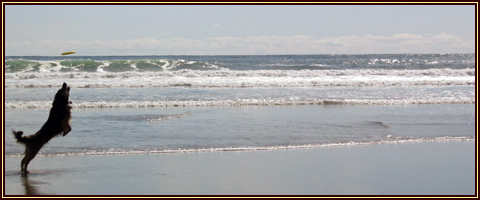Canine Diarrhea: Simple Ways For Your Dog To Feel Better
According to surveys made by the American Veterinary Medical Association, the third most common problem that veterinarians treat among dogs that are brought to them is canine diarrhea. If your pup has ever had this issue, you know how much your day is changed around. Canine stomach problems may results from an overgrowth of bacteria in their digestive system or intestinal tract, or they may simply be due to excessive feeding and dietary indiscretion. More troublesome cases can include bloating of the stomach and intestines or stomach cancer.
If your doggy’s tummy problems are not showing up with vomiting and/or lack of appetite, the problem might be mild and you can handle it yourself. Here are some helpful tips you might use to help your dog’s diarrhea. But if your little dog is vomiting or showing blood in his feces, you need to put him in the car and drive directly to the vet’s office.
But sometimes stomach problems and loose bowels are just side effects from diet changes, super snacking or digging through the trash in the kitchen. Other reasons for this might involve worms that can make bacteria grow in your dog’s intestinal tract.
If worms are present in your dog’s tool (its gross to think about, but you have to look for these) like spaghetti-like roundworms or rice-like tapeworms, an over-the-counter dewormer can be purchased and these meds usually would be enough to do the trick. However, certain parasites like Giardia and other non-visible worms are not easily treated by dewormers. This could lead to more stomach problems and more loose bowel movements. In such cases, you need to bring samples of fresh stool to the vet for further checking and verification so appropriate medicines can be administered.
Its possible that you can handle mild stomach problems just by withholding food from your pet for a day. This is with the assumption that everything else with your dog except the loose bowel movement is normal and there are no unusual symptoms being exhibited.
After a day of no food at all for your dog, give him or her a meal made of boiled hamburger, chicken and white rice with all the fat drained off of the meat. Give your dog small portions of food 5 or 6 times a day until his bowels are normal and the stool turns firm again. In some cases, vets would recommend the addition of small quantities of yogurt to the diet to add beneficial bacteria into their digestive system.







